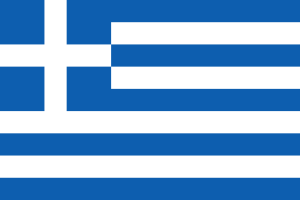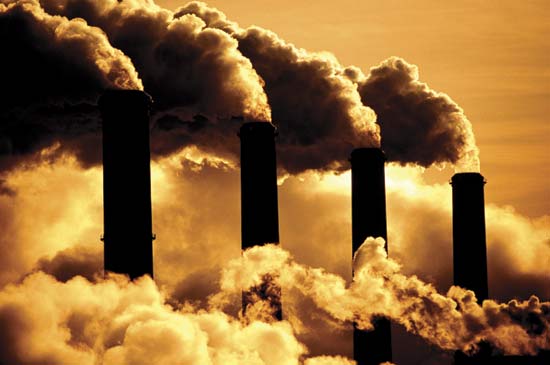 Greece has been in an increasingly troubled economic situation of late, but the nation’s current crisis has been decades in the making. Over several generations successive governments overspent on an enormous scale on populist social programs, such a healthcare, pensions and other benefits. And, these same governments — regardless of party affiliation — did little to account for this spending either by cutting services or raising revenues (and may would also add, curtailing tax evasion).
Greece has been in an increasingly troubled economic situation of late, but the nation’s current crisis has been decades in the making. Over several generations successive governments overspent on an enormous scale on populist social programs, such a healthcare, pensions and other benefits. And, these same governments — regardless of party affiliation — did little to account for this spending either by cutting services or raising revenues (and may would also add, curtailing tax evasion).
On this 4th of July, Greece is now effectively bankrupt — banks are closed, a quarter of the adult population is unemployed, European creditors have called in their loans, and lenders are sitting on the sidelines until the country charts a more sustainable path. So, while the country suffers I am reminded on this anniversary of America’s founding that Greece’s most important export — democracy — still flourishes, despite some obvious flaws. This ancient civilization brought the world many gifts; we should be thankful and hopeful that the embattled Greeks can once again rebuild their great nation and export their treasures.
From the Guardian:
Just how special were the ancient Greeks? Was there really a Greek “miracle”? The question has become painfully politicised. Critics of colonialism and racism tend to play down the specialness of the ancient Greeks. Those who maintain that there was something identifiably different and even superior about the Greeks, on the other hand, are often die-hard conservatives who have a vested interest in proving the superiority of “western” ideals. I fit into neither camp. I am certainly opposed to colonialism and racism, and have investigated reactionary abuses of the classical tradition in colonial India and by apologists of slavery all the way through to the American Civil War. But my constant engagement with the ancient Greeks and their culture has made me more, rather than less, convinced that they asked a series of crucial questions that are difficult to identify in combination within any of the other cultures of the ancient Mediterranean or Near Eastern antiquity. This is why, as I will go on to argue, I believe in classics for the people – that ideas from the ancient Greeks should be taught to everybody, not just the privileged few.
The foundations of Greek culture were laid long before the arrival of Christianity, between 800 and 300BC. Greek-speakers lived in hundreds of different villages, towns and cities, from Spain to Libya and the Nile Delta, from the freezing river Don in the northeastern corner of the Black Sea to Trebizond. They were culturally elastic, and often freely intermarried with other peoples; they had no sense of ethnic inequality that was biologically determined, since the concepts of distinct world “races” had not been invented. They tolerated and even welcomed imported foreign gods. And what united them was never geopolitics. With the arguable exception of the short-lived Macedonian empire in the later 4th century BC, there never was a recognisable, independent, state run by Greek-speakers, centred in and including what we now know as Greece, until after the Greek war of independence in the early 19th century.
What bound the Greeks together was an enquiring cast of mind underpinned by a wonderful shared set of stories and poems and a restlessness that made them more likely to sail away and found a new city-state than tolerate starvation or oppression in a mainland metropolis. The diasporic, seafaring Greeks, while they invented new communities from scratch and were stimulated by interacting with other ethnic groups, made a rapid series of intellectual discoveries that raised the Mediterranean world to a new level of civilisation. This process of self-education was much admired by the Greeks and Romans of the centuries that followed. When the texts and artworks of classical Greece were rediscovered in the European Renaissance, they changed the world for a second time.
Yet over the last two decades the notion that the Greeks were exceptional has been questioned. It has been emphasised that they were just one of many ethnic and linguistic groups centred in the eastern end of the ancient Mediterranean world. Long before the Greeks appeared in the historical record, several complicated civilisations had existed – the Mesopotamians and Egyptians, the Hattians and Hittites. Other peoples provided the Greeks with crucial technological advances; they learned the phonetic alphabet from the Phoenicians, and how to mint coins from the Lydians. They may have learned how to compose elaborate cult hymns from the mysterious Luwians of Syria and central Anatolia. During the period in which the Greeks invented rational philosophy and science, after 600BC, their horizons were dramatically opened up by the expansion of the Persian empire.
In the late 19th and 20th centuries, our understanding of the other cultures of the Ancient Near East advanced rapidly. We know far more about the minds of the Greeks’ predecessors and neighbours than we did before the landmark discovery of the Epic of Gilgamesh on clay tablets in the Tigris valley in 1853. There has been a stream of newly published texts in the languages of the successive peoples who dominated the fertile plains of Mesopotamia (Sumerians, Akkadians, Babylonians, Assyrians). The words of Hittites on the tablets found at Hattuša in central Turkey and the phrases inscribed on clay tablets at Ugarit in northern Syria have been deciphered. New texts as well as fresh interpretations of writings by the ancient Egyptians continue to appear, requiring, for example, a reassessment of the importance of the Nubians to North African history. Many of these thrilling advances have revealed how much the Greeks shared with, and absorbed from, their predecessors and neighbours. Painstaking comparative studies have been published which reveal the Greek “miracle” to have been one constituent of a continuous process of intercultural exchange.
It has become a new orthodoxy that the Greeks were very similar to their Ancient Near Eastern neighbours, in Mesopotamia, Egypt, the Levant, Persia and Asia Minor. Some scholars have gone so far as to ask whether the Greeks came up with anything new at all, or whether they merely acted as a conduit through which the combined wisdom of all the civilisations of the eastern Mediterranean was disseminated across the territories conquered by Alexander the Great, before arriving at Rome and posterity. Others have seen sinister racist motives at work and accused classicists of creating in their own image the Oldest Dead White European Males; some have claimed, with some justification, that northern Europeans have systematically distorted and concealed the evidence showing how much the ancient Greeks owed to Semitic and African peoples rather than to Indo-European, “Aryan” traditions.
Taken singly, most Greek achievements can be paralleled in the culture of at least one of their neighbours. The Babylonians knew about Pythagoras’s theorem centuries before Pythagoras was born. The tribes of the Caucasus had brought mining and metallurgy to unprecedented levels. The Hittites had made advances in chariot technology, but they were also highly literate. They recorded the polished and emotive orations delivered on formal occasions in their royal court, and their carefully argued legal speeches. One Hittite king foreshadows Greek historiography when he chronicles in detail his frustration at the incompetence of some of his military officers during the siege of a Hurrian city. The Phoenicians were just as great seafarers as any Greeks. The Egyptians developed medicine based on empirical experience rather than religious dogma and told Odyssey-like stories about sailors who went missing and returned after adventures overseas. Pithy fables similar to those of Aesop were composed in an archaic Aramaic dialect of Syria and housed in Jewish temples. Architectural design concepts and technical know-how came from the Persians to the Greek world via the many Ionian Greek workmen who helped build Persepolis, Susa and Pasargadae, named Yauna in Persian texts. Nevertheless, none of these peoples produced anything equivalent to Athenian democracy, comic theatre, philosophical logic or Aristotle’s Nicomachean Ethics.
Read the entire article here.
Image: Flag of Greece. Courtesy of Wikipedia. Public Domain.

